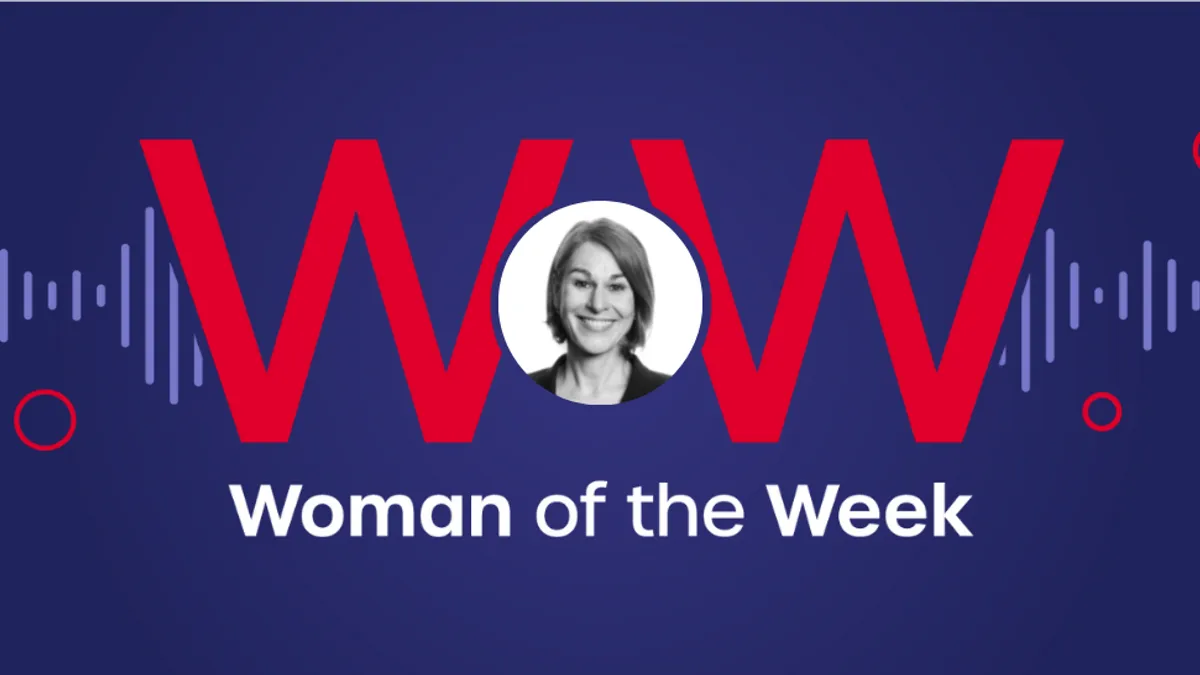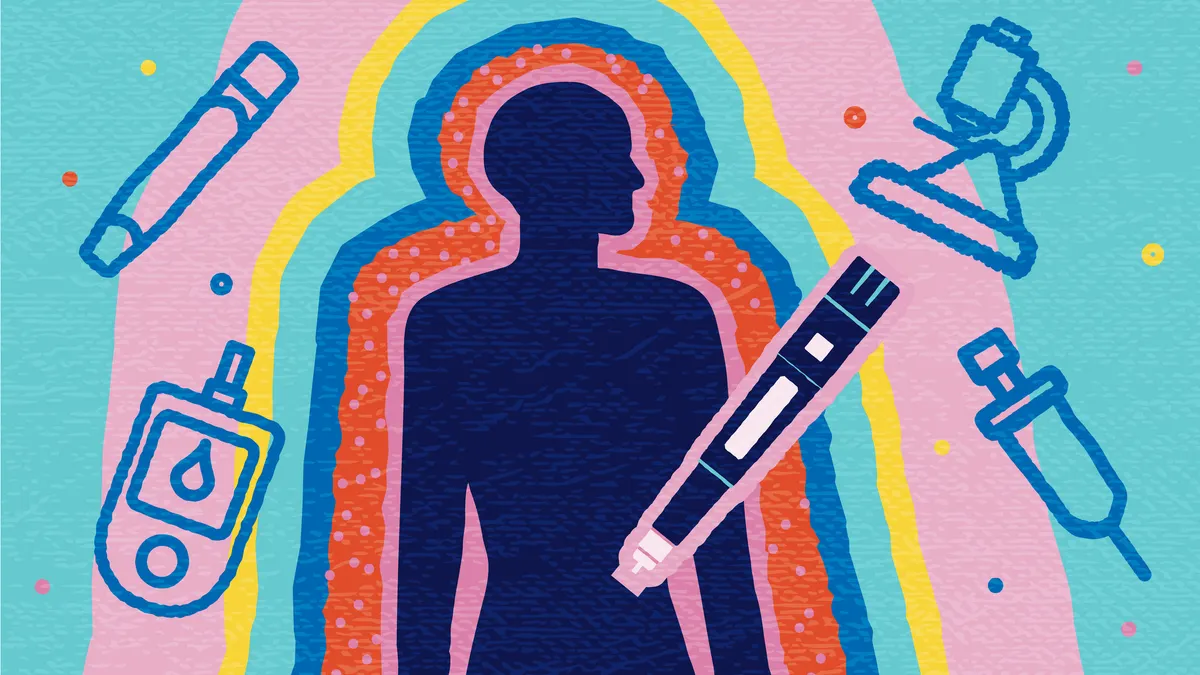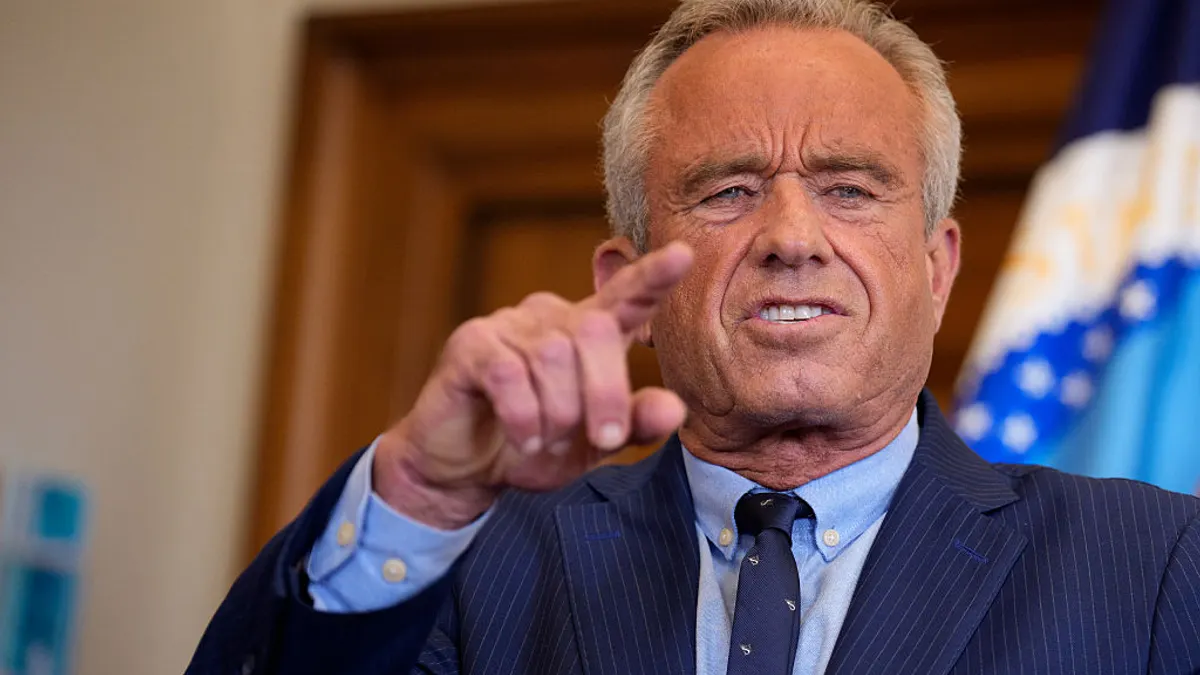Welcome to the Woman of the Week podcast, a weekly discussion that illuminates the unique stories of women leaders who are catalyzing change throughout the life sciences industry. You can check out all our podcast episodes here.
In May 2021, Merck & Co. completed the spinoff of Organon as a global women’s healthcare company with a mission to deliver impactful medicines and solutions. Susanne “Susi” Fiedler, who had been with Merck for 20-plus years, was an integral part of the process, and embraced a once-in-a-lifetime opportunity to be on the ground floor of building a new company.
“We are building upon our strong foundation of more than 60 medicines and other products across a range of women’s health areas, including reproductive health, heart disease, dermatology, allergies and asthma,” Fiedler says. “When we launched and spun off from Merck, we didn’t just launch a company, we launched a commitment to listening to women and to understanding their unmet medical needs. And in our listening, women have started to share with us what they believe are the most pressing healthcare needs that are just not being met.”
As chief commercial officer, listening is critical to her role. Namely, Fiedler must understand women and their needs across different countries and cultures. And as a leader, she also strives to create a culture where employees can bring their best ideas to the table and know they are going to be heard.
Here, Fiedler outlines the five core pillars of her strategic objectives for the new company, how she builds high-performing teams and her goals for women’s health.
Listen to the podcast or you can also read the transcript of the conversation below.
Editor's note: This show was produced and edited by Dan Limbach.
Interview transcript
Welcome to WoW – The Woman of the Week podcast by PharmaVoice powered by Industry Dive.
In this episode, Taren Grom, Editor-in-Chief Emeritus at PharmaVoice, meets with Susanne Fiedler, Chief Commercial Officer, Organon.
Taren: Susi, welcome to the WoW podcast program.
Susi: Thanks Taren for having me.
Taren: It’s such a pleasure to meet you. Susi, Organon has undergone quite a transformation over the past year. Can you please share what some of the strategic goals are for the organization?
Susi: Yes, thank you. It’s been really a year of transformation for us at Organon and we spun off officially from Merck in June this year with the aim of becoming the world’s leading women’s healthcare company. And with this launch of Organon, we became the only pharmaceutical company of its size with a very clear strategic focus on women’s health. And as we focus on building a better future for women, we are also making sure that we apply a very broad approach to the view of women’s health. In terms of our strategic focus, we will maximize the potential of our portfolio today as a starting point, which is focused on contraception, fertility, and maternal health. But we will also look beyond reproductive health. To focus on conditions that are unique to women, for example, menopause, endometriosis, and uterine fibroids.
And as a second step, we will also explore conditions that disproportionately impact women and an example for that are osteoporosis, stroke, or migraine. And across all of these areas, we also apply broader approach on the solutions we offer. We will go beyond therapeutics. We will include devices, diagnostics, and also digital tools to really explore how we can best support women with their most pressing healthcare needs.
And of course, in order to achieve this leadership in women’s health, we need a very sustainable business as a foundation. And from a commercial perspective, one of our core strengths is the diversity of our portfolio and our broad global footprint. We supply our treatments to over 140 markets and we have 64 medicines that span across three strategic franchises – women’s health, biosimilars, and established brands. And our growth engines are women’s health and biosimilars. But our established brand portfolio is also very critical for us because it provides us with a stable base of revenue and gives us significant opportunities to grow the business and reinvest in new opportunities particularly in women’s health.
Taren: Susi, that sounds very exciting. And I’m so thrilled to hear that you’re going to go beyond contraceptives and going into these other areas that impact women disproportionately. When we talk about women’s health it’s really is such an underserved category within the pharmaceutical space. What was the impetus to spin out Organon from Merck? How did that all come about?
Susi: It was really important for us that we give full focusing credit on this part of the portfolio which we took over to Organon. And for us, it is really, we have this vision of creating a better and healthier every day for every woman. And when we launched and spun off from Merck, we didn’t just launch a company, we launched a commitment to listening to women and to understand their unmet medical needs. And in our listening, women have started to share with us what they believe are the most pressing healthcare needs that are just not being met. And they mentioned to us, mental health, menopause, contraception, pregnancy and birth, fertility, endometriosis, and our listening journey really shows us that women feel these are overlooked areas. This spinoff gives us the opportunity to have a very clear focus on this part of the portfolio which we have in our hands right now, but also to expand that and the guiding principle is always listening to women and their most pressing needs.
Taren: How exciting. I know you have been at Merck for over 20 years, I believe and so, this now going to Organon, how does that feel for you? Is it a strange transition?
Susi: It actually feels very natural. I’ve been in Merck for yes, more than 20 years and I’ve had a great journey along the way. A great career with lots of opportunities in different countries and working on different parts of our portfolio. But this is a once in a lifetime opportunity really to be a founder of a company and really not to start from scratch, but to take the best from Merck and develop it further. And it’s been very exciting to set up this new company. It’s exciting to look at opportunities with a portfolio we have in our hands right now. We have started to identify opportunities for growth, and we approach this business very much bottom up because of diversity of our portfolio. These products we have are performing very differently market by market.
Taren: And since you brought up products performing in the markets, let’s turn to your role as chief commercial officer. What are some of your strategic goals? And how are you running the business on a global basis?
Susi: So, for me, maybe start with running the business from a global basis. For me, leadership, really always starts with listening and my role involves listening to women and their needs across different countries and cultures. Listening to healthcare professionals and the needs they have. And then of course, also listening to my team to make sure that we are building an inclusive women’s health company and an organization where all voices are heard and where people can bring their best ideas and also feel safe to speak up.
A major part of my role is ensuring alignment amongst my team and bringing my team globally of approximately 4,000 people across roughly 60 markets together around our purpose and our goals. And as a chief commercial officer, I have our global marketing teams reporting into me across our strategic pillars. And I also have five geographic clusters reporting into me – Europe and Canada, Asia Pacific and Japan. Then a region, which is called LAMERA, it includes Latin America, Middle East, Russia and Africa and U.S. and China. And I have to make sure that we have the right capabilities in place to support this very broad and diverse business. Diversity and equity are really essential to advancing the commercial organization here and the company.
I’m also committed to developing people to bring a new and diverse talent, to build a culture as I said, where people are comfortable in contributing and sharing. Because the more we embrace this diversity and inclusion and equity, the more our customers and stakeholders will feel and see the positive effects of that.
And you also asked me about our strategic goals as a commercial organization. They are really centered on five core pillars. The first one is maximizing our portfolio by accelerating the opportunities we have in women’s health and biosimilars in particular. The second one is focusing on our customers and patient needs by listening while creating value for our broad range of stakeholders. The third one is streamlining our operations by leveraging new technologies. We have to simplify processes. We have to become lean and agile and also, we have to implement effective ways of working. And number four, really focuses on people. Develop our people and our people pipeline by fostering a growth mindset. And number five, really, it’s all about the future. Create the future for Organon through very flawless execution of the lifecycle management opportunities we have. And also build a pipeline for business development and partnerships.
Taren: Susi, wow, that’s all I can say. That is such a huge remit and I think the goals and the vision is so laudable. But I do have to ask, women’s health in the United States is complicated, but you’re trying to tackle this on a global basis. How do you even begin to get your arms wrapped around what the health issues are in China, Russia, and Latin America? It seems almost an impossible task.
Susi: It is a complex and diverse tasks for sure, but it is also a lot of fun. And for me, it really starts with the right leadership team. I’ve been able to recruit and attract some of very strong leaders around the globe and we are a very diverse commercial team, and everyone is really looking into opportunities, always starting with this listening exercise. Because the needs and the potential solutions are very different market by market. So, it’s important for us to have a very strong customer focus and listen to our women and our stakeholders.
Taren: When we talk about women’s health, we have to talk about clinical development of some of these drugs. And so often, women are not even included in clinical trials, and I know your expertise is in the commercial area, but it all does begin in the clinic. So how is Organon starting to address this discrepancy in terms of diversity in its clinical trials?
Susi: It starts really with having this as a very clear target and being a role model in the things that are inside of our control and what we are conducting. We need to make sure that no matter which area of our business or our research or manufacturing that we always embrace diversity and equity.
Taren: Excellent. There are obviously challenges and opportunities of being a women’s health company. And as you said earlier, you’re the only one of your size at the moment paving this path. But there are a lot of other women’s health companies out there. Do you feel that with this attention on women’s health that there’s an opportunity to really elevate the market for everyone at this point?
Susi: I certainly believe that. For me, it also starts by founding a unique company and it starts with our culture as a company and our values and we have paid a lot of attention to that. As I mentioned to you earlier, we put a lot of effort in ensuring alignment around our enterprise strategy and our aspirations. We put a lot of effort on leadership topics and want to make sure that we ensure strongest collaboration. And there are certainly so many opportunities in women’s health for many players, if you wish. Simply because there are so many areas of high unmet medical need and we have started as a company to act on some of those opportunities. In our first 150 days as a company, we have initiated three transactions in some of those most urgent areas like endometriosis, preterm labor, and postpartum hemorrhage. And we’ve been very, very thoughtful in terms of where we want to engage and where we want to do these deals, which is really in areas where we can advance innovation in large underserved market, which has been lacking for decades.
I think also the part of listening to our customers and the customer focus is critical because governments around the world are putting more effort behind women’s health and have this as one of the objectives to improve women’s health in their countries. So, aligning with their objectives and helping them achieve their goals is something which will make us successful and will also ensure that we make a difference to women in the world.
Taren: Wonderful. And as we know, most women are the chief medical officers of their own homes. So, if women are healthier then, their families will be healthier, and they make most of the healthcare decisions. So, it makes perfect sense. It’s so lovely to hear that there’s finally a company that is focusing solely on women’s health. So, congratulations to you all. You’ve talked often about this listening to the customers. In the first six months, you all did something pretty unique regarding the launch. Can you talk to me a little bit about your listening tour?
Susi: Yes, we have certainly started early on and again, country by country to listen to women and their needs around the world. And at our launch event, we had the ball of voices collecting really women’s voices around the world. We are very engaged really country by country and we are exploring a lot of opportunities there. I don’t know if I answered your question, maybe you…
Taren: You did. And I think it was really kind of a unique opportunity when you launched--where you did take those voices that you tapped into and shared them with the world for the launch. I thought that was really a unique commercial opportunity. So, I just wanted to give you a little kudos there.
Susi: Thank you.
Taren: You talked about leading a global team and as everybody has been in the same situation over the past 20 to 24 months because of the pandemic and launching a new company in the midst of a pandemic, not easy. How did you manage through this? And did you learn any leadership lessons along the way?
Susi: Yes, I mean, it’s been new and challenging and sometimes rewarding for all of us. It’s been a completely different world. And yes, as you said, it’s particularly special if you launch a new company in the middle of a pandemic. My priority as a leader has really been that I ensure that I’m there for my team. And of course, that’s something you always have to do, right? But it’s particularly important when people are facing not just challenges in their professional life, but also in their personal life. So, starting conversations were business conversations as well with the simple question, how are you doing? Is there anything I can help you with or can support you with? That has made a big difference and not immediately jumping into business topics.
The alignment around our objectives and company goals is always critical but has been particularly critical when you work remotely. It’s important that we ensure we stay connected in both formal and informal ways as well. But checking in that people are aligned on our goals has been very important and also not just the big goals, but really the goals per quarter and the deliverables that are critical to acquire them. Because sometimes we have difficulties in prioritizing, so these conversations have been particularly valuable. And then just the consciousness that people have had very personal different situations to manage through this pandemic. And rather focusing on people being available during traditional work hours, I really have focused on these deliveries and made sure everyone is clear on them and then gave people the flexibility they needed to perform and pursue their work. We have not seen really any lack of performance. In fact, it’s been refreshing to see how people are managing themselves very well and how they are able to prioritize what’s best for the business, and in that way, what’s best for us launching a new company.
Taren: That’s wonderful. We see a lot of reports coming out about productivity and it doesn’t seem to be a big issue especially within the pharmaceutical space because people are so committed to what they’re doing on behalf of patients. But at the same time, it does put a strain on employers and on employees because there’s that need to continually feel like you need to perform. And as an employer, it’s that empathy that has become like that leadership trait that maybe wasn’t so visible in the past. But has now become one of those hard skills that some leaders have had to embrace.
Susi: Yes, it’s interesting that you say hard skills, because very often we refer to these things as soft skills.
Taren: Right.
Susi: But getting the leadership piece right and constantly developing yourself as a leader is actually a hard thing to do. It’s not a soft thing. It’s not something where you just say, this is my intention and then I will grow as a leader. It’s constant work and effort. And what was also important for me a big learning, yes, there are things that, we can do more things virtually than we thought. At the same time, it became also very obvious to me how important face-to-face is and that virtually, we miss out on some kind of interactions. And everything can also get more complicated because you have to schedule meetings. For every discussion you want to have you can’t have that trust spontaneously in a hallway. So yes, there are things we can do remotely better than I thought, but I also now I appreciate even more when I have the opportunity to meet face-to-face what a difference that makes.
Taren: Absolutely. Do you feel that you’ll ever go back, I mean, we’re right now in the next phase of the pandemic. You’re looking at a hybrid work model or is that what you’re doing right now is a hybrid, some at home, some in the office?
Susi: Yes. And again, we are a global company, and we have to really pay attention to the situations in the countries and the regulations of governments. And that can change as you know, very quickly. There’re sometimes strong recommendations to work from home, in some markets sometimes it’s also mandatory. But when we have the opportunity, over the last summer we had that a lot, I would say that, yes, it was a hybrid model. I think this flexibility and trust we gave people we need to continue to do that. I don’t see us going back from 9 to 5 work and just sitting in the office, so that everyone can see that I work because work is not something I go to. Work is something I do right and so the flexibility, but at the same time also, yeah, it will be important that we inspire people to come back to the office when they have the opportunity because of what I just said. It’s so highly valuable to meet people and engage personally. So, it’s a mixture. I think we need to take the best from both worlds.
Taren: Sure, and I think that’s quite…that’s a dynamic that if we look back two years ago, people would say, “Oh no, everybody is going to be back 9 to 5.” But I’m talking to more and more leaders thinking, maybe that’s not the case that we are really going to be looking at a future hybrid workplace situation and that has its own leadership challenges. Because there’s no roadmap for this. It’s just you’re building the plane as you’re flying it right now, I would think. You talked earlier about the need for diversity and inclusion. What is your leadership makeup? Are you pretty gender-balanced? How diverse is your executive team?
Susi: So, our executive team and our board are very diverse, not just in terms of gender but also other criteria. I think that that is outstanding, what we have been able to do there. But we have areas in our organization were there is still work for us to do and that will always be the case. Because the moment you don’t pay attention and you don’t have a clear target or what would look like for you and you leave it just as it flows, then you might miss on the opportunity to have more diversity. There are pockets in our organization where we still have over time work to do, but I’m sure we will get there, because we are very aware of the importance.
Taren: Fantastic. Well, kudos to you for being as far along as you are. I’d love to ask you, what advice can you share with other women who want to progress their careers to reach the C-suite or executive level? What are some of the things that you learned along the way?
Susi: There are many, but the most important piece of advice I would give is live in the present and be open to new and different opportunities. Don’t be fixated on a certain career ladder you might have in your head because in reality career ladders don’t exist and you might, if you’re too much fixated on it, you might miss out on some of the opportunities that appear unexpected.
And for many women, especially I would also say, don’t think too much. When you get an opportunity don’t think too much if you have the right capabilities yet. We can never be 100 percent prepared for a role but jump in and give it a go. Just give it a go, I think, is really critical. And also jumping in the situation where you might be out of your comfort zone because this is when we learn and grow.
Taren: Absolutely, that’s great advice. Is there a piece of leadership advice that you rely on that somebody gave to you along the way?
Susi: Yeah, it’s a bit of a different topic. I would say, yeah, there have been many advices but the one that I, on a daily basis remind myself of really is always assume best intentions. This has been very powerful for my professional life, but also for my personal life, because sometimes even if you think people might have…people don’t have the most constructive impact on you in that moment, they for sure are not aware. And they had different intentions and positive intentions. So have the conversation and go in there with this assumption that the intentions are the best.
Taren: That’s a very nice thought to have. You talked about are going through your career and not following a particular ladder. Did you have mentors during your career that helped guide you or maybe a sponsor that helped you with your career journey?
Susi: Yeah, I certainly had mentors in different stages of life, different mentors, not just one or two. Some internal in the company, some more in the group of friends or external coaches. By the way, I also think from time to time an external coach is really recommendable. It’s something that helps you to reflect on your behavior and your impact and learnt you to identify the minor little things you can change in order to improve your leadership even further. Because I also think we have to constantly learn. It’s a journey that never stops and we need to embrace different views and we need to grow as leaders constantly. Sponsors, yes, certainly as well. I think it’s important to build a network in a company so that you can build up trust and you can be considered for roles. Yeah, all of that, but it’s not just one or two. It also changes over different phases of your life.
Taren: Thank you so much for sharing that piece of your personal journey. Finally, because this is our WoW podcast, can you share with me an accomplishment or a wow moment that either shaped your career or change the trajectory of your career?
Susi: Yeah, of course, they are several of those but there’s one big one and that was really my experience as managing director in Australia. That was really where I was completely outside of my comfort zone. And again, this is why I know that I learned the most, because it was outside of my comfort zone. It was an experience where I came to Australia, and I started to work there with a business that was underperforming, a team that was quite isolated and lack of alignment around the purpose and around company goals. What we were able to do as a team there in my time was, we were able to build a culture where people could bring their best to work. Where their opinions were heard and where they felt safe to speak up and bring their ideas. Because only we bring all the diverse ideas together, that’s when we develop the most innovative solutions for our customers.
And what we really were able to do is we established a different mindset of growth mindset and we learned to turn no into yes. And most importantly, what we have been able to establish is that people did not just work with each other but started to work for each other. And with this approach we were able to achieve strong alignment and growth. We were able to grow our business again, and we were able to turn the business around. That was very rewarding while it took a while and while it was, I had many dark moments knowing that this can be done through alignment and collaboration. That was a key learning for me. And that’s what I constantly try to achieve again by transforming businesses and teams and organizations.
Taren: Wow. That is a wow moment. When were you in Australia?
Susi: That was 2012 to 2015.
Taren: Fantastic and any other countries outside of Australia and United States?
Susi: Yeah. That’s another many, many wow moments that started really with me. Going for the first time outside of Germany that was back in 2005, I had my first role in the United States. I was in charge of part of our business in Europe and Canada, actually, but also working very closely with headquarters. And that was really the first time where I was exposed heavily on not just one different culture but many different cultures. And I quickly learned how rewarding it is to embrace different views and perspectives and how you end up coming up with better solutions and what you deliver is high performance as a team, if you have this diversity of backgrounds.
Taren: That’s fantastic. Diversity of teams and building those high performing teams. Tell me, what are some of those things you look for in terms of those characteristics? When you want to put somebody in your team, what’s a must-have?
Susi: Yeah, so that’s actually something I was very conscious of when we started to found Organon. I formed my team, I was really sitting down and thinking, what are the criteria someone needs to fulfill for me to consider that person in my leadership team? And besides the fact that someone needs to bring the right experience and capabilities and skills, which in that stage, people have proven many times already, it was all about personality traits. And the most important one is really, I was looking for humble people who have small egos, but big brains who really are very team-oriented and want to help and support others be successful, very empathetic as well. All these kind of things, which again, some people would call soft skills, but I think when it comes to leadership and in aligning people around the vision, these are the hardest skills.
Taren: Well, Susi, thank you so much for your time today. And I want to say congratulations on the launch of Organon and I want to wish you continued success. And we will be watching what you do to impact women going forward. So, thank you so much for being part of our Wow podcast program.
Susi: Thank you so much, Taren, it’s been a pleasure to be with you today.
Thanks for listening to this episode of WoW, the Woman of the Week podcast. For more WoW episodes visit pharmavoice.com.


 Podcast
Podcast



















